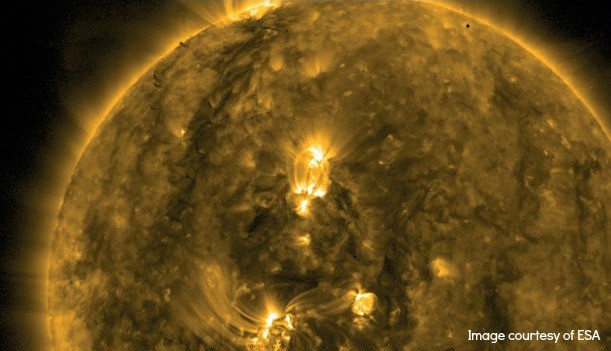GMV sets up the mission control center of ESA's Solar Exploration Mission

GMV has won the contract for setting up the control center of the European Space Agency (ESA)’s solar exploration mission, Solar Orbiter. This mission has several idiosyncratic features. Unlike most space vehicles placed into earth orbit, this vehicle will circle the sun at a minimum distance of Mercury’s orbital radius, opening up a unique perspective and bringing both Polar Regions into view.
The project awarded to GMV includes the development and maintenance of the satellite control center, in charge of real-time command and telemetry processing. From the operations point of view the control center has to enable complex operator functions such as downloading and uploading large files and handling high-priority telemetry.
Solar Orbiter it will be carrying ten scientific instruments to take local and remote readings, giving us the first ever complete view of solar physics and the heliosphere. The mission, whose launch is slated for July 2017, will make five orbits of the sun during a two-and-a-half year period. Solar Orbiter continues a long tradition of European solar exploration missions, most notably the Helios 1 and 2 satellites, Ulysses and SOHO, in collaboration with NASA, plus ESA’s Proba-2 mission.
GMV is one of the world’s leading suppliers of satellite control centers. In particular it is the main supplier of systems of this type for the European Space Agency (ESA) and EUMETSAT, the European organization for the exploitation of meteorological satellites. GMV has provided the control centers for the vast majority of ESA’s EO missions (GOCE, Cryosat-1/2, Swarm, Sentinel1,2,3 and 5p series) and of interplanetary missions like Bepi Colombo and Exomars Rover, as well as EUMETSAT MTG (Meteosat Third Generation). The excellent reputation built up over all these projects was decisive in winning this new contract.